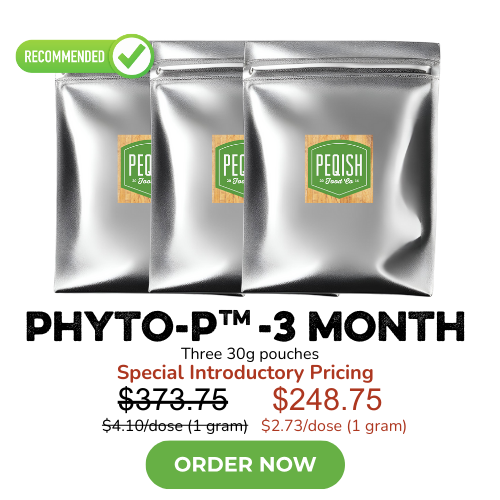Essential Strategies to Boost the Immune System for Optimal Health
When it comes to warding off infections or the common cold, the key is to boost your immune system, naturally. This guide cuts through the complexity to offer straightforward, effective strategies for enhancing immune health. From the foods you eat to the hours you sleep, strengthen your body’s natural defenses against disease starting today.
Key Takeaways
Prioritizing a diet rich in micronutrients, particularly from plant-based foods, is essential for strengthening the immune system.
Regular moderate-intensity physical activity, staying hydrated, and getting quality sleep are key lifestyle habits that boost immune function.
Managing stress, maintaining gut health, avoiding harmful habits, and considering supplements when necessary are critical for optimal immune support.
Unlocking the Power of Nutrition to Enhance Immunity
Your immune system can be strengthened by consistently consuming and eating healthy foods only, which in turn supports your body’s ability to fend off disease and infection.
Eating nutritious foods is essential because eating certain foods and nutrients have a greater impact on our immune responses. These vital substances are commonly known as micronutrients and are key to boosting immunity.
To bolster your immune function and improve resistance against illnesses, it’s important to integrate the practice of eating healthful foods that boost your immune system into your daily routine.
The Role of Micronutrients in Immune Health
Despite their requirement in minute amounts, micronutrients deliver a powerful impact on our immune systems and health. They encompass an array of vitamins and minerals that each contribute uniquely to bolstering our own immune systems and responses. Magnesium, for example, is pivotal for the activation of enzymes related to the immune system. Selenium serves as a critical antioxidant important for controlling inflammation and aiding immunity.
Essential vitamins such as vitamin A, vitamin C, vitamin D, and vitamin E play crucial roles in maintaining robust immunity by performing tasks ranging from reducing the risk of infections to functioning as antioxidants that strengthen the activity of immune cells.
Plant-Based Foods: Your Immune System's Best Friend
Consuming a diverse array of five to nine servings of fruits and vegetables every day equips our bodies with the immune-boosting vitamins, minerals, and antioxidants necessary for a healthy immune system. Foods such as red bell peppers,, spinach, broccoli, and other plant-based selections provide not just an enjoyable assortment of vegetables to our meals, but also fortify our immunity. We also recommend that you check out our plant superfood, Phyto-P™.
Also, fiber found in whole grains and plant foods improves gut health, which in turn bolsters overall body immunity.
Physical Activity as an Immune Booster
To a balanced diet, engaging in physical activity is a significant booster for immune health. By partaking in exercises of moderate intensity, our bodies become more efficient at recognizing and combating infections. Consistent exercise also lessens the risk and likelihood of falling prey to illnesses such as upper respiratory tract infections through better regulation and response mechanisms within the body and immune system.
To achieve optimal benefits from exercise and for immune health, it’s recommended that one engages in 150–300 minutes of aerobic activities with moderate intensity each week. Activities like brisk walking, practicing yoga, cycling leisurely or swimming fall into this moderate intensity exercise category for adults.
These types of exercises not only improve circulation but also enhance sleep quality—all contributing factors to bolstering overall immunity and delivering extensive health advantages.
Hydration: A Simple Yet Effective Immune Support
Maintaining proper hydration is a fundamental, yet frequently neglected approach to bolstering immune health. Given that water comprises 96% of the lymphatic system—a key component in immune function—it’s clear that adequate fluid intake is essential for its optimal performance. Hydrating oneself not only aids in natural detoxification processes, but also ensures efficient delivery of oxygen and vital nutrients to cells.
To facilitate the removal of harmful bacteria and toxins from our systems, it’s advisable to consume between 8-10 glasses of water each day. This practice supports our overall health by enhancing the body’s innate defense mechanisms against illness and disease-causing agents.
Prioritizing Sleep for Stronger Immunity
Getting enough sleep is a crucial component for maintaining a robust immune system. While we rest, our immune system ramps up its efforts to bolster infection-fighting capabilities by optimizing T-cell responses and increasing cytokine production. It’s critical to focus on sufficient sleep duration and take steps to enhance the quality of that sleep.
To achieve this goal, one can adhere to a regular sleeping schedule, establish a sleeping environment that promotes restfulness, reduce exposure to blue light before bedtime, and engage in calming activities prior to going asleep.
Managing Stress to Protect Immune Function
Chronic stress can have a profound adverse effect on the immune system, making it crucial for adults to implement effective stress management strategies for enhanced immune health. Engaging adults in physical activities and exercise, practicing deep breathing exercises, and having conversations with trusted individuals or therapists are instrumental in mitigating stress levels.
Incorporation of techniques such as meditation into one’s daily routine, maintaining good sleep habits, eating healthy foods, and slowly altering lifestyle choices to minimize stress, are all essential steps that aid in reducing stress and strengthening the health of the immune system.
The Gut-Immunity Axis: Probiotics and Beyond
Research in the area of the gut-immunity axis uncovers compelling connections between the health of our digestive system and its impact on immunity. Foods enriched with probiotics, such as fermented offerings, are critical to this dynamic. These dietary elements contain active probiotic microbes that boost immune defenses by maintaining a balanced intestinal microbiome and improving the performance of immune cells.
Consequently, adding food items like yogurt along with fermented options including kefir and kimchi to one’s diet can bolster overall immune function comprehensively.
Avoiding Harmful Habits for Immune Health
Avoiding detrimental behaviors is crucial for maintaining a healthy immune system. The act of smoking, for example, can intensify harmful immune responses, cancer, and diminish the body’s defensive mechanisms against disease and infection. Excessive drinking has a similar impact on the body, weakening the immune system and may affect various immune cells like leukocytes and T-cells, which are altered even by moderate alcohol consumption.
Consequently, abstaining from these damaging practices plays an essential role in safeguarding and strengthening the health of your immune system.
Supplementation: When Diet Isn't Enough
Maintaining a robust and healthy immune system most often hinges on adhering to a healthy diet, yet there are situations in which dietary intake alone doesn’t adequately support one’s nutritional needs. If someone is facing an identified shortfall in nutrients that cannot be corrected through their usual consumption of food, then turning to dietary supplements might prove beneficial. These supplemental aids, including zinc and vitamins C, D, and B12 may fill the gap when natural diets fall short – particularly during times of illness.
On the other hand, it should be noted that for those who already follow a nutritious and well-balanced diet. Incorporating additional supplements may not significantly enhance the performance of the immune system.
Seasonal Considerations for Immune Health
The shift in seasons can impact the health of our immune system. During periods when there is a heightened risk and chance of contracting respiratory viruses, including COVID-19 and influenza, it becomes crucial to take extra measures against the cold and flu season by, practicing excellent hygiene routines, taking supplements, and ensuring that one’s diet is replete with essential nutrients to bolster immunity.
Including items like chicken soup in your diet during cold, can be beneficial for maintaining adequate hydration levels and fostering anti-inflammatory effects which are particularly supportive of respiratory well-being throughout colds and flu season.
Summary
To sum up, sustaining a healthy weight and strong immune system requires an integrated approach that includes consuming a well-balanced diet, engaging in consistent physical activity, ensuring proper hydration, getting quality sleep, managing stress effectively, maintaining gut health, steering clear of detrimental habits like smoking and excessive drinking, taking appropriate supplements as needed and being mindful of seasonal changes. Adopting these comprehensive health strategies helps to bolster our body’s innate protective mechanisms and improve our overall capacity to ward off illnesses for long-term health preservation.
Frequently Asked Questions
Which foods increase immunity?
Consuming a variety of foods, including lean proteins alongside fruits and vegetables, can enhance your immune system’s ability to ward off infections.
To elevate your immunity levels, opt for a nutrition plan abundant in these key foods.
What supplements help with immune system?
To fortify and support your immune system, it is essential to ensure adequate intake of certain nutrients. These include vitamins A, C, D, E, as well as minerals like selenium and zinc, all of which are crucial for optimal, immune system function. Additionally, polyphenols, a type of antioxidant found in a variety of foods and supplements, have been shown to have immune-boosting properties. These compounds can help to modulate the immune system and enhance the body’s defense against pathogens. Therefore, supplements rich in polyphenols can also be beneficial for immune health.
What are some ways to boost my immune system naturally?
Maintaining a robust immune system can be achieved through natural methods such as consuming a varied and healthy diet that, rich in variety polyphenols, engaging in regular physical activity, ensuring adequate sleep, controlling stress levels, and steering clear of detrimental practices like excessive drinking and smoking.
How does physical activity enhance immune function?
Partaking in regular exercise, of moderate intensity can enhance the function of your immune system by facilitating better circulation of immune cells, thus enabling the body to more efficiently identify and fight off infections.
Consistent physical activity is known to enhance immunity, bolster general immune function and improve the body’s response to infectious agents.
How important is hydration for immune health?
Maintaining adequate hydration is essential for immune health, as it facilitates the delivery of oxygen and nutrients to cells while also assisting in the expulsion of harmful bacteria and toxins from the body.
Disclaimer
The information provided in this article is for educational and informational purposes only and is not intended as medical advice. While we strive to provide accurate and up-to-date information, we make no representations or warranties of any kind, express or implied, about the completeness, accuracy, reliability, suitability, or availability with respect to the content. The information contained herein should not be used as a substitute for the advice of an appropriately qualified and licensed physician or other healthcare provider. The suggestions and insights should not be used for diagnosing or treating a health problem or disease, or prescribing any medication. It is always best to seek the advice of your qualified healthcare provider with any questions you may have regarding a medical condition or treatment and before considering supplementation. Never disregard professional medical advice or delay in seeking it because of something you have read on this site.












